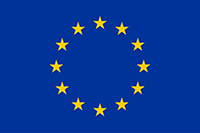‘One of the main challenges raised by the COVID-19 pandemic was its rapid spread, which hindered an internationally coordinated research effort to seek for answers to all the questions related to detecting infection, guidelines for treatment, preventive measures and identification of risk groups,’ says Jörn Klein, professor of microbiology and infection control at the University of South-Eastern Norway.
 To meet this challenge, the world’s largest research programme, Horizon 2020, has recently granted more than NOK 30 million to the project ‘Unravelling Data for Rapid Evidence-Based Response to COVID-19’ (unCoVer).
To meet this challenge, the world’s largest research programme, Horizon 2020, has recently granted more than NOK 30 million to the project ‘Unravelling Data for Rapid Evidence-Based Response to COVID-19’ (unCoVer).
USN is one of a total of 29 partners in this project.
Person-centred treatment
The project aims to collect data on treatment of the virus infection from large parts of the world, so that a network of experts with complementary skills and sufficient resources for effective data analysis can see these data as a cohesive whole.
With the aid of rich and harmonised underlying data, Klein believes we can close many of the knowledge gaps that currently are associated with COVID-19.
'This will permit the development of far more predictable models for the disease trajectories of different patient groups. Thereby, doctors, epidemiologists, researchers and associated professionals can be given specific recommendations regarding the optimal course of treatment that takes the situation of individual patients into account to a much greater extent,’ says Klein.
He adds that the results from the project may also be of major importance when it comes to identifying risk factors for the spread of the infection and reducing the magnitude of future outbreaks.
The Norwegian Pandemic Registry
The project consists of a network of research institutions that collect data on treatment options for COVID-19 patients from healthcare systems in a number of European countries as well as Brazil, Colombia, South Korea and the United States.
USN will assist by adding data from the Norwegian Pandemic Registry and working with analyses and assessments of the datasets.
The data collection encompasses electronic medical records (EMR), registry data of COVID-19 cases/patients, hospital examinations and potential cohort data of COVID 19 cases/patients.
To maintain privacy and confidentiality, all information such as name and age is stored separately from the other information in the different registries.
Underutilised sources
Health systems the world over have established guidelines and tools to store and retrieve information on the care provided to patients.
‘This type of real-world data enables us to study the patient’s risk factors, but also to assess the safety and efficacy of the treatment of COVID-19 in real-life situations,’ says Klein.
He notes how these are as yet underutilised sources of rich information that can be used to supplement other approaches and complement findings that have already been made by clinical research trials.
Highlights vulnerable patients
As a project partner, USN will gain access to harmonised international datasets that Klein believes will also help improve the Norwegian response to COVID-19:
‘This gives us an opportunity to identify not only the main clinical and social risk factors in the management of COVID-19, but also potentially vulnerable patients who are at the highest risk of a serious disease trajectory because of their age, sex, lifestyle, behaviour, geography and other social factors,’ Klein explains.
Key contribution
‘It is important and positive for USN and our faculty of health and social sciences to contribute to a broad, international effort to search for solutions to global and very real challenges. We are also glad that the project includes a person-centred dimension: the goal of helping develop treatment that takes greater account of the individual differences among COVID-19 patients ,’ says Pia Cecilie Bing-Jonsson, Dean of the Faculty of Health and Social Sciences, USN.

